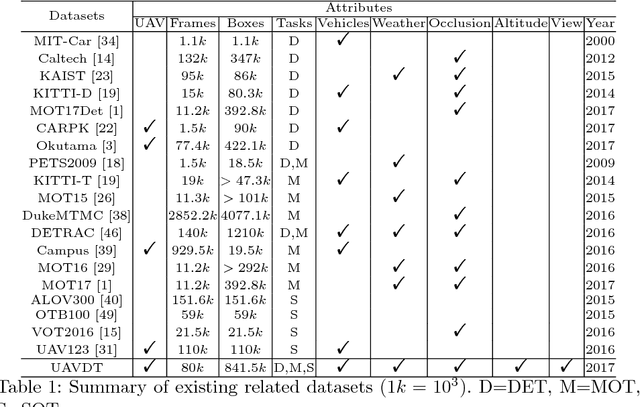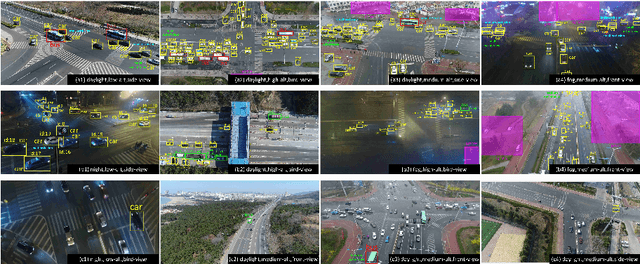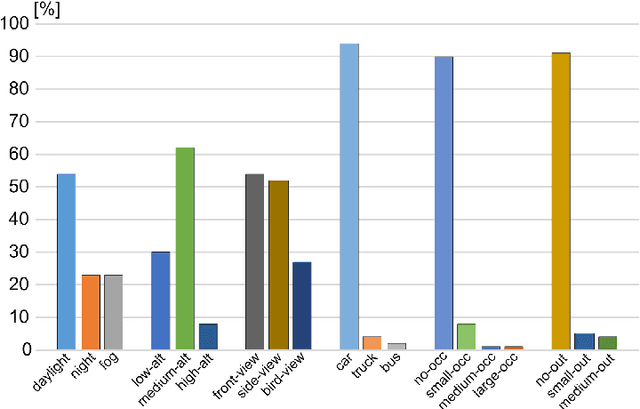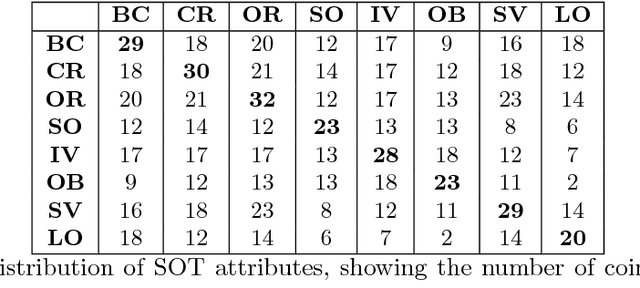The Unmanned Aerial Vehicle Benchmark: Object Detection and Tracking
Paper and Code
Mar 26, 2018



With the advantage of high mobility, Unmanned Aerial Vehicles (UAVs) are used to fuel numerous important applications in computer vision, delivering more efficiency and convenience than surveillance cameras with fixed camera angle, scale and view. However, very limited UAV datasets are proposed, and they focus only on a specific task such as visual tracking or object detection in relatively constrained scenarios. Consequently, it is of great importance to develop an unconstrained UAV benchmark to boost related researches. In this paper, we construct a new UAV benchmark focusing on complex scenarios with new level challenges. Selected from 10 hours raw videos, about 80,000 representative frames are fully annotated with bounding boxes as well as up to 14 kinds of attributes (e.g., weather condition, flying altitude, camera view, vehicle category, and occlusion) for three fundamental computer vision tasks: object detection, single object tracking, and multiple object tracking. Then, a detailed quantitative study is performed using most recent state-of-the-art algorithms for each task. Experimental results show that the current state-of-the-art methods perform relative worse on our dataset, due to the new challenges appeared in UAV based real scenes, e.g., high density, small object, and camera motion. To our knowledge, our work is the first time to explore such issues in unconstrained scenes comprehensively.
 Add to Chrome
Add to Chrome Add to Firefox
Add to Firefox Add to Edge
Add to Edge